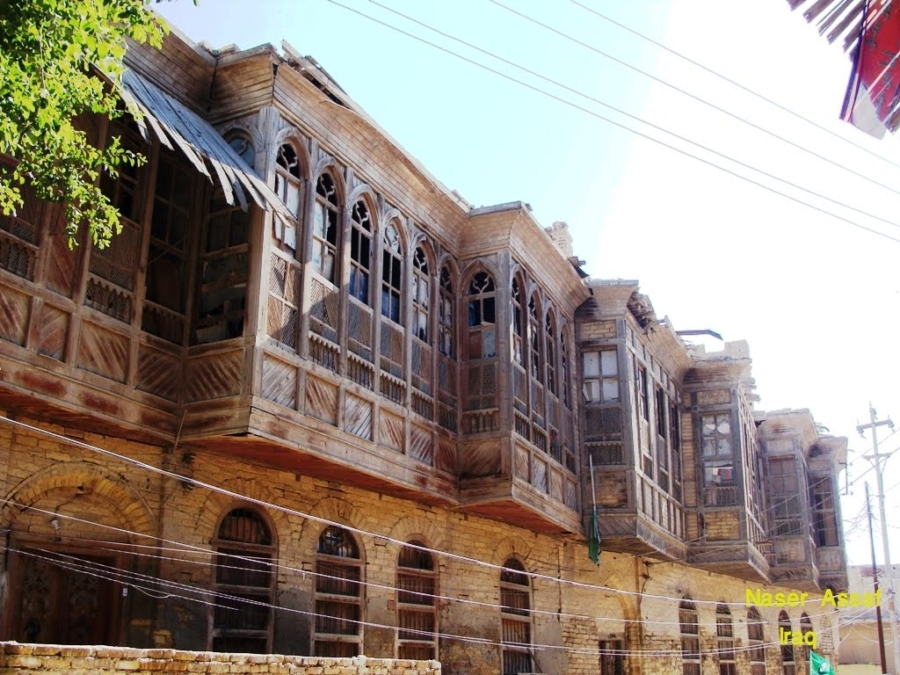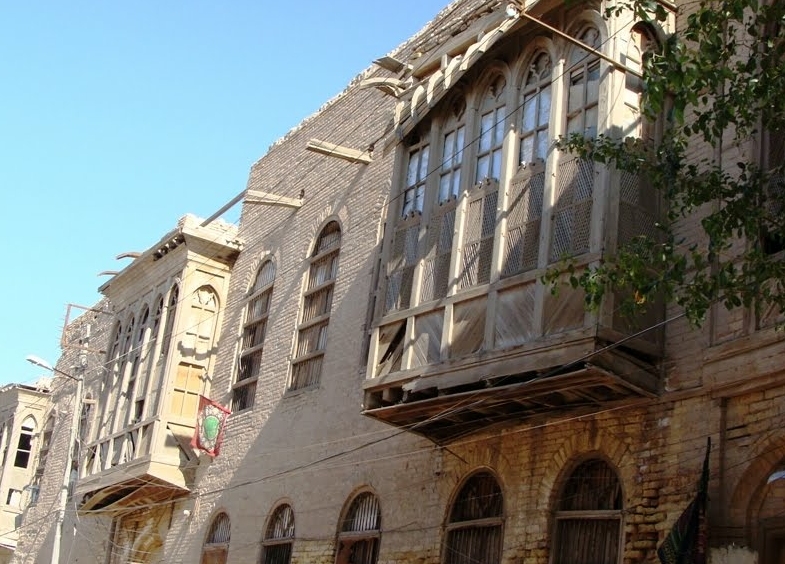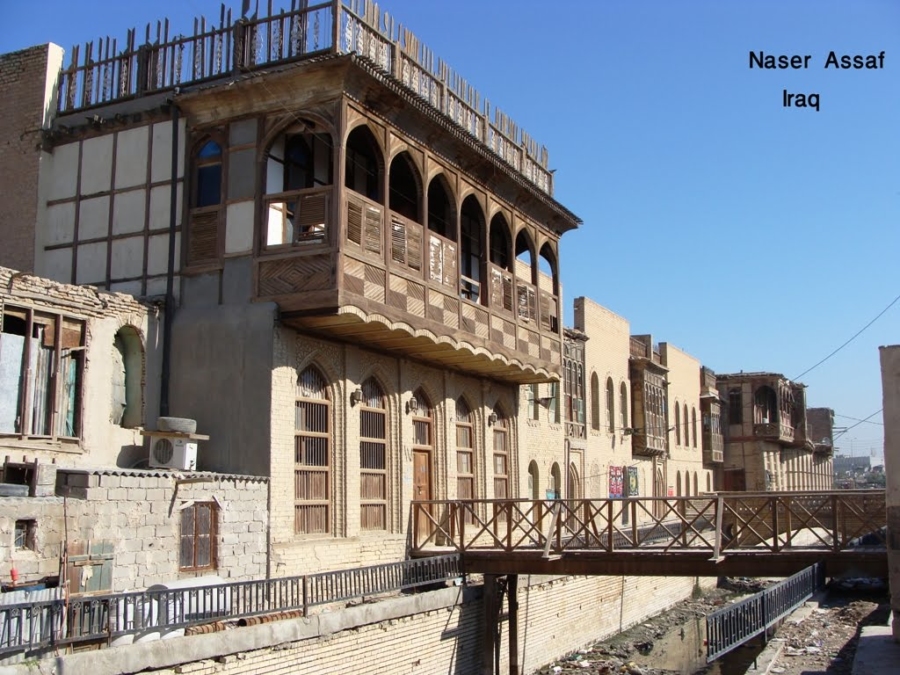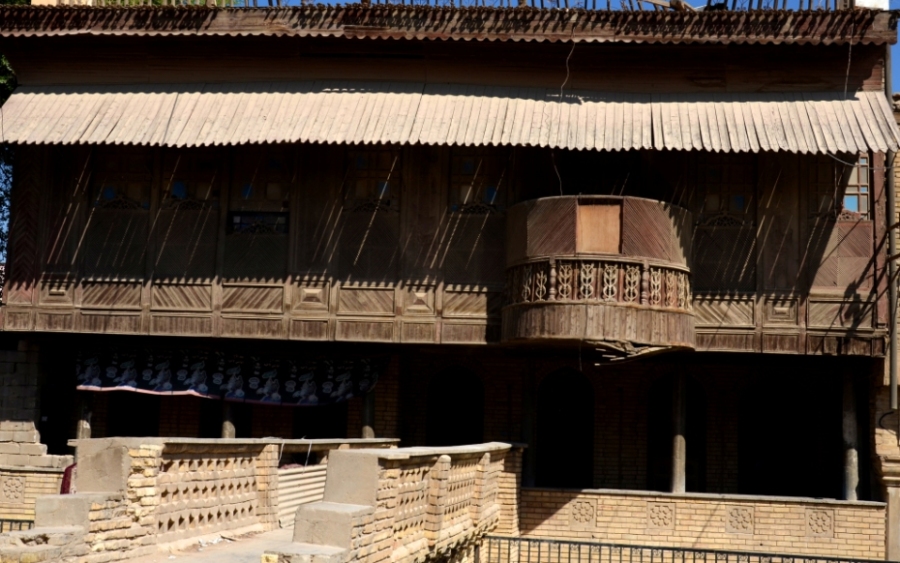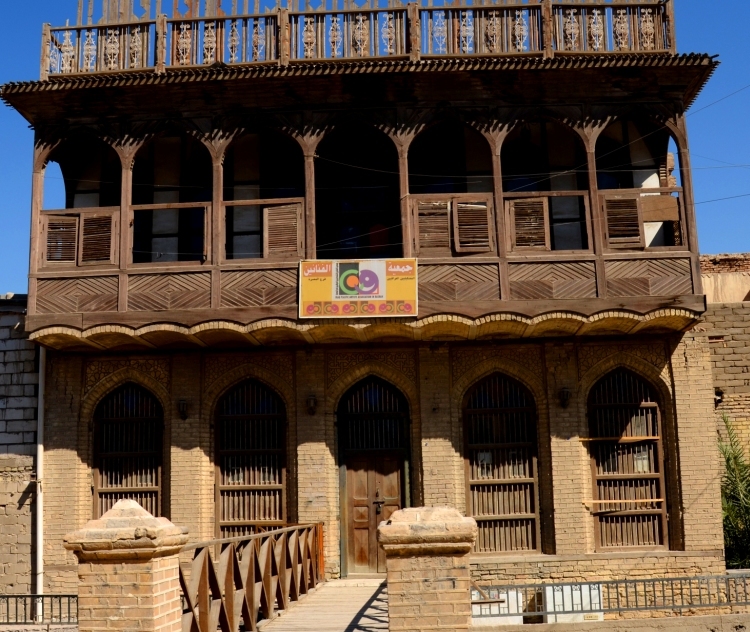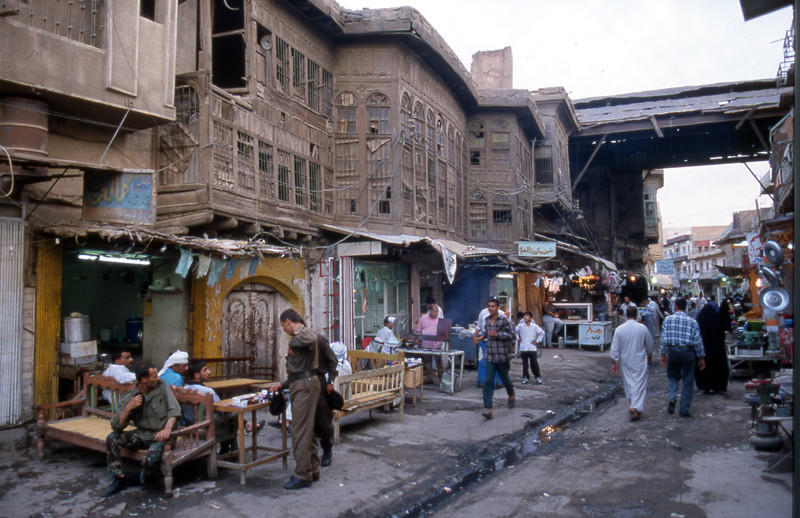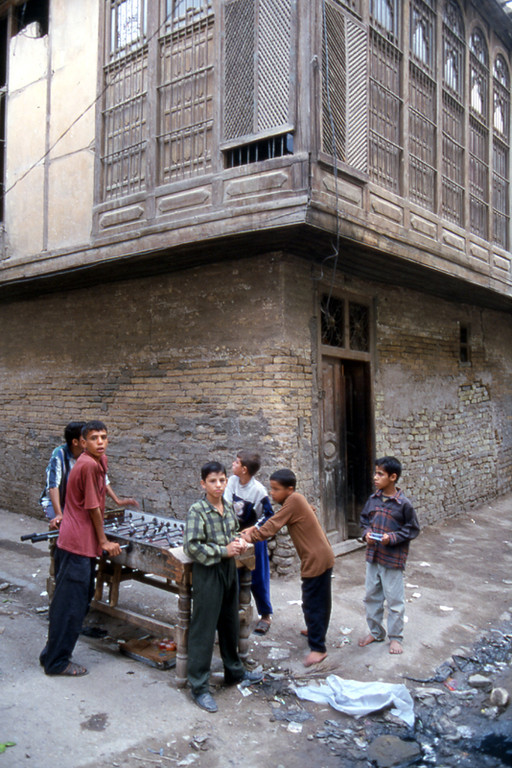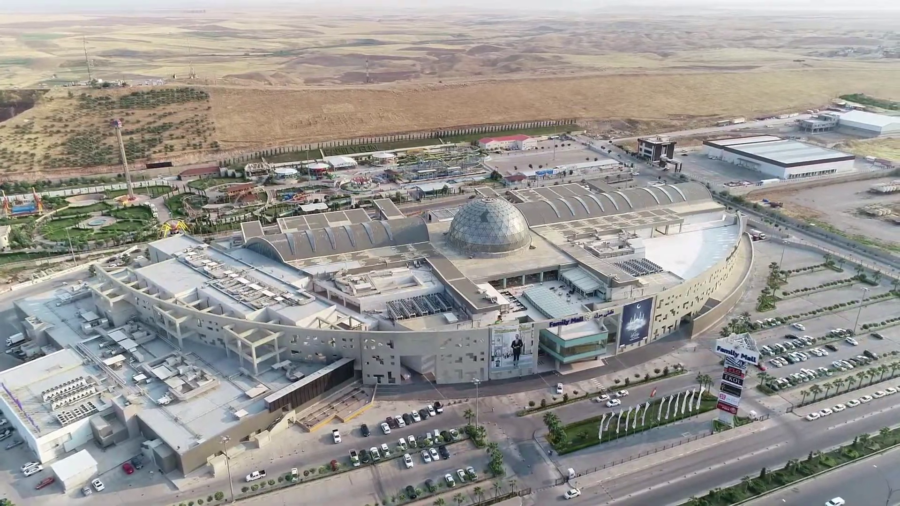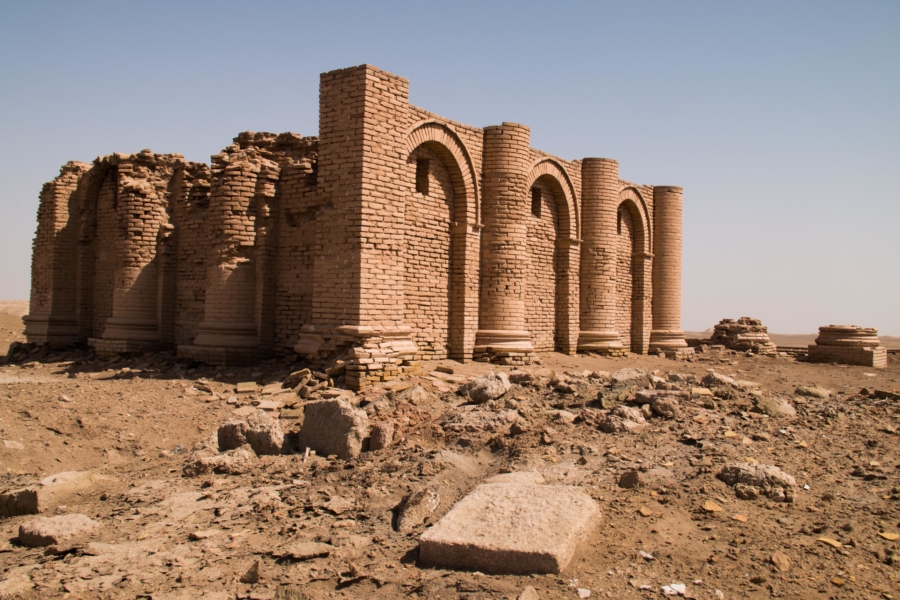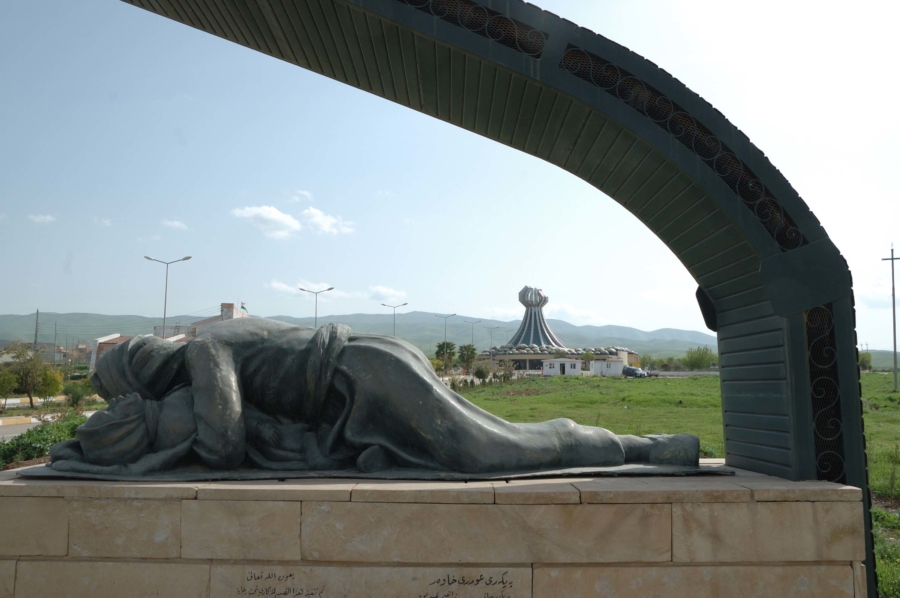Shanasheel (balcony) is an Islamic architectural element, that appears as an extruded wooden structure from the frontal facade of domestic buildings. Shanasheel designs were used in the 20s and 30s of last century for domestic buildings mainly in Baghdad and Basra. Shanasheel designs are based on Islamic geometric style, characterised by detailed latticework shapes, covering inside and outside walls, partitions and windows of the balconies. Specialised craftsmen were needed to construct a shanasheel. In the course of the modernisation of urban planning in Iraq, since the 1940s, which promoted a more Western style architecture, broke with this traditions and the Shanasheel disappeared in new buildings.
Some of the Shanasheel houses took more than 3 years to build due to the large number of details, and relied on mulberry wood (Tekkei) or Sidr wood (buckthorn) and other available local woods. Shanasheel Basra is one of the remnants of a period of time representing the history of the Iraqi city. These monuments are combined in one area. The Shanasheel – known in some countries as Musharrafieh – contains wooden balconies decorated in a protruding shape to the front and is characterized by the manufacture of its engravings by hand, and this protrusion is usually made of wood and geometric decorations inlaid with glass in windows or doors in other cases.

